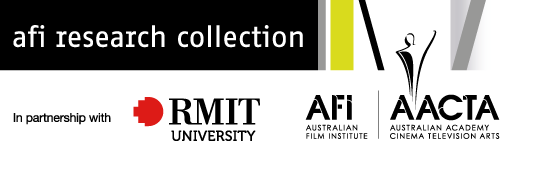book
Indelible shadows : film and the Holocaust / Annette Insdorf Cambridge New York: Cambridge University Press, 1989.
Call No: 744(=924) INSAuthor: Insdorf, Annette Edition: 2nd edPlace: Cambridge New YorkPublisher: Cambridge University PressPubDate: 1989PhysDes: xix, 293 p. : ill. ; 24 cmSubject: GENOCIDE IN FILMS ; BRECHT, BERTOLT ; CHAPLIN, CHARLES ; LANZMANN, CLAUDE ; MALLE, LOUIS ; OPHULS, MARCEL ; BERGMAN, INGMAR ; IMHOOF, MARKUS ; JARVIK, LAURENCE ; LILIENTHAL, PETER ; LUBITSCH, ERNST ; WERTMULLER, LINA ; PLAYING FOR TIME [TV] (US, Daniel Mann, 1980) ; WAR AND REMEMBRANCE [TV] (US, Dan Curtis, 1988-89) ; RUE HAUTE (BE/FR, Andre Ernotte & Elliot Tiber, 1976) ; SERPENT'S EGG, THE (US/GW, Ingmar Bergman, 1977) ; SOPHIE'S CHOICE (US, Alan J. Pakula, 1982) ; HOTEL TERMINUS: KLAUS BARBIE, HIS LIFE AND TIMES (US, Marcel Ophuls, 1988) ; KAPO (IT/FR/YU, Gillo Pontecorvo, 1960) ; LACOMBE LUCIEN (FR/IT/GW, Louis Malle, 1974) ; DERNIER METRO, LE (FR, Francois Truffaut, 1980) ; LILI MARLEEN (GW, Rainer Werner Fassbinder, 1981) ; MEMORY OF JUSTICE, THE (UK/GW/US, Marcel Ophuls, 19760 ; [MISTER] MR KLEIN [M. KLEIN] (FR/IT, Joseph Losey, 1976) ; OBCHOD NA KORZE (CS, Jan Kadar & Elmar Klos, 1965) ; PASAZERKA (PL, Andrzej Munk, 1963 [prod. 1961-63]) ; PAWNBROKER, THE (US, Sidney Lumet, 1964) ; SORROW AND THE PITY, THE [CHAGRIN ET LA PITIE, LE] (FR/GW/SZ, Marcel Ophuls, 1969) ; BLECHTROMMEL, DIE (GW/FR/YU/PL, Volker Schlondorff, 1979) ; TO BE OR NOT TO BE (US, Ernst Lubitsch, 1942) ; LAGERSTRASSE AUSCHWITZ [TV] (GW, Ebbo Demant, 1979) ; GUICHETS DU LOUVRE, LES (FR, Michel Mitrani, 1974) ; BOOT IST VOLL, DAS (SZ/GGW/AU, Markus Imhoof, 1981) ; CHILDREN FROM NUMBER 67, THE [KINDER AUS NO. 67, DIE] (GW, Usch Barthelmess-Weller & Werner Meyer, 1980) ; DAMNED, THE [CADUTA DEGLI DEI, LA] (IT/GW, Luchino Visconti, 1969) ; DAVID (GW, Peter Lilienthal, 1979) ; SHOAH (FR/SZ, Claude Lanzmann, 1985) ; NUIT ET BROUILLARD (FR, Alain Resnais, 1955) ; GREAT DICTATOR, THE (US, Charles Chaplin, 1940) Notes: Includes index; Filmography: p. [267]-276; Bibliography: p. [277]-282ISBN: 0521372798; 0521378109 (pbk.)LON: 6081353
More info
title clippings file
LILI MARLEEN : (GW, Rainer Werner Fassbinder, 1980)
More info
journal article
Lili Marleen : Fascism and the film industry in October (Summer 1982) vol.20 p.115-140
More info
book
Unsettling scores : German film, music, and ideology / Roger Hillman Bloomington, Indiana: Indiana University Press, 2005.
Call No: 634.6 HILAuthor: Hillman, Roger Source: USPlace: Bloomington, IndianaPublisher: Indiana University PressPubDate: 2005PhysDes: 219 p. : ill. ; 24 cmSubject: MUSIC AND THE CINEMA ; GERMANY ; NEW GERMAN CINEMA ; CLASSICAL MUSIC IN FILMS ; MOVEMENTS IN FILM HISTORY ; MUSIC IN FILMS ; NATIONAL CULTURE AND THE CINEMA. GERMANY ; FASCISM AND THE CINEMA. GERMANY ; NATIONALISM AND THE CINEMA. GERMANY ; POLITICS AND THE CINEMA. GERMANY ; SYBERBERG, HANS JURGEN ; KLUGE, ALEXANDER ; FASSBINDER, RAINER WERNER ; HERZOG, WERNER ; VISCONTI, LUCHINO ; DIE PATRIOTIN (GW, Alexander Kluge, 1979) ; LILI MARLEEN (GW, Rainer Werner Fassbinder, 1981) ; SENSO (IT, Luchino Visconti, 1954) ; WOYZECK (GW, Werner Herzog, 1979) ; FITZCARRALDO (GW, Werner Herzog, 1982) ; LEKTIONEN IN FINSTERNIS (GG, Werner Herzog, 1992) ; DIE ALLSEITIG REDUZIERTE PERSÖNLICHKEIT - REDUPERS (GW, Helke Sander, 1977) ; NOSTALGHIA (IT, Andre Tarkovsky, 1983) ; COVEK NIJE TICA (YU, Dusan Makavejev, 1965) ; STALKER (UR, Andrei Tarkovsky, 1979) Summary: "'Unsettling Scores: German Film, Music, and Ideology' examines the use of classical music in film, particularly in the New German Cinema of the 1970s and early 1980s. By integrating the music of Beethoven, Mahler, and others into their films, directors such as Fassbinder, Kluge, and Syderberg consciously called attention to its cultural significance. Through this music their films could reference and, in some cases, explore an embedded cultural tradition that included German nationalism and the rise of Nazism, especially during a period when German films were gaining international attention for the first time since the 1920s. Classical music conditioned the responses of German audiences in the 1970s and 1980s and was, in turn, reinterpreted in new cinematic contexts. In this pioneering volume, Hillman enriches our understanding of the powerful effects of music in cinema and the aesthetic and dramatic concerns of postwar German filmmakers." (Taken from back cover)Notes: Includes selected bibliography, indexISBN: 0253217547Donation: Donated by Senses of Cinema, 2009
More info

